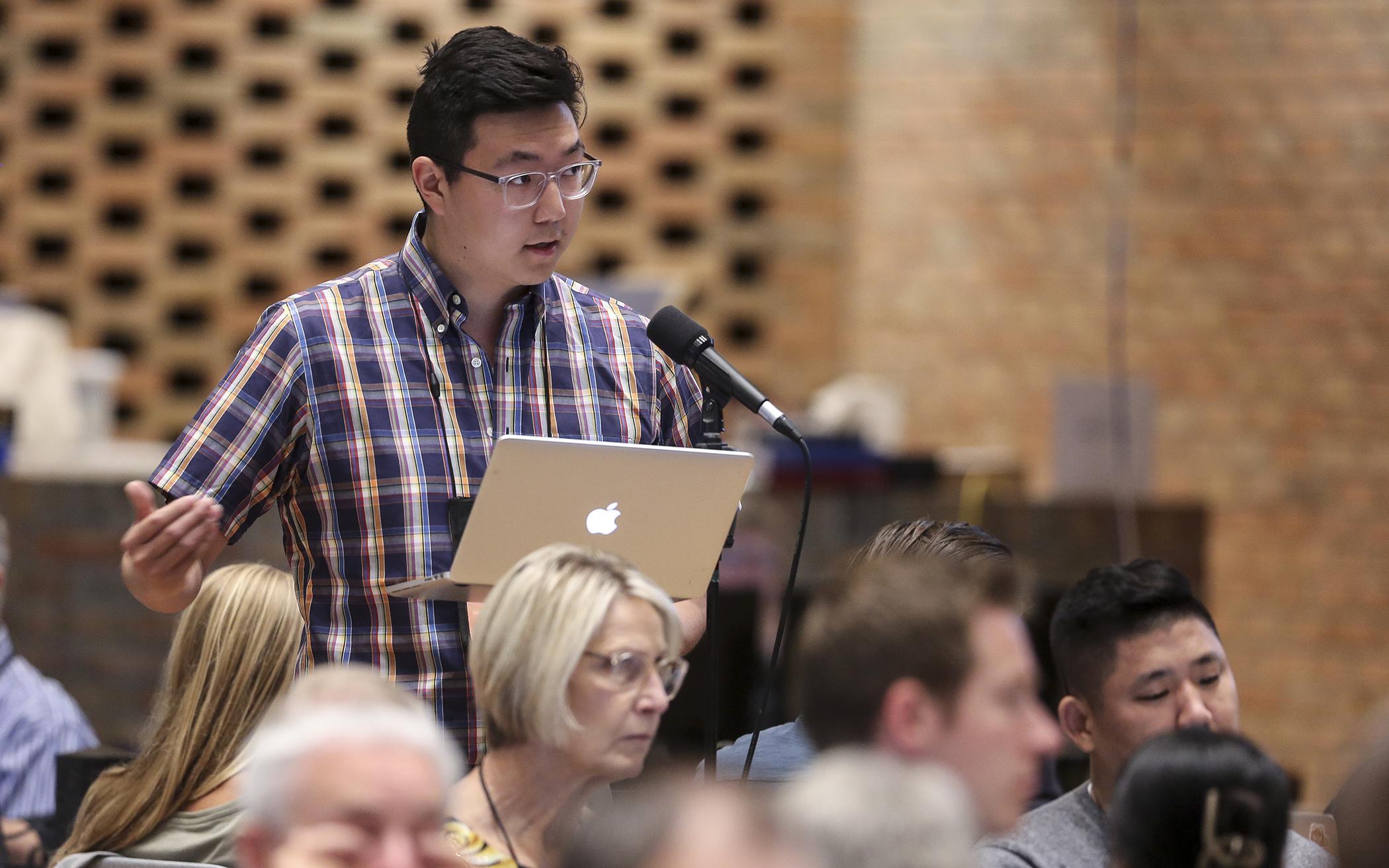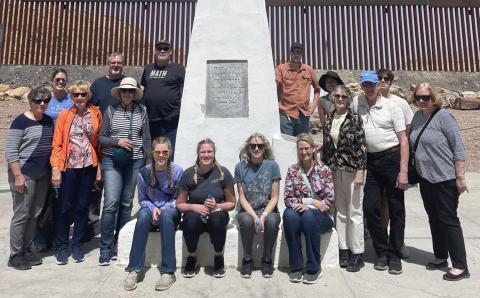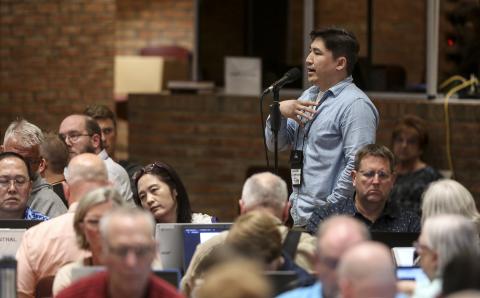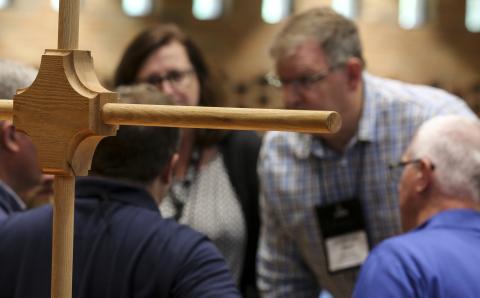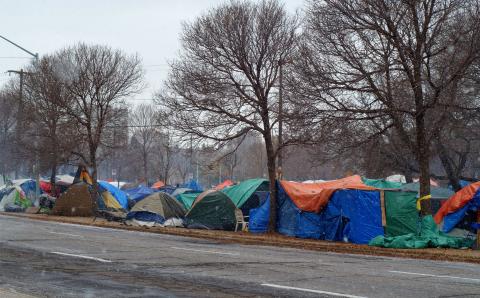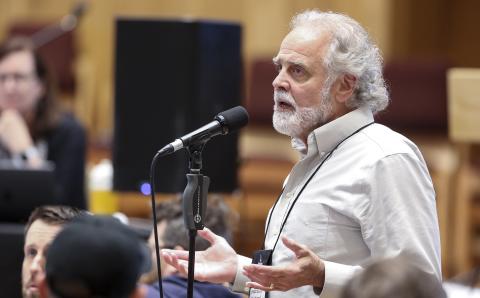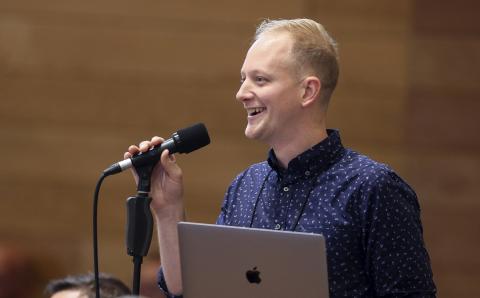Synod 2023 instructs the Office of General Secretary to create a report that would give a “theological framework for the possibilities and parameters of a virtual church,” defined as “a church which, by design, meets only online.”
Some synod participants were hesitant about the request to create a report. Daniel Choi, young adult representative, shared his concern over the ability for his generation and younger to “create and sustain relationships.” He said, “I anticipate that our future generations will struggle to live an embodied and present life.” He said, “Virtual church will teach the next generation to become reliant on the resources they can find online rather than actual in-person human connection.” He doesn’t believe that “online churches can sufficiently provide embodied worship.”
Adrian de Lange, Classis Alberta South/Saskatchewan, and reporter for the committee recommending the virtual church report, said, “A virtual church may or not be a real church, but the reason cannot be that there is only one legitimate manifestation of the church, so we need the work of this report to explore (that).”
Jim Heyboer, Classis Grandville, noted how technology has changed so quickly and, “we owe it to the church and to ourselves to investigate.”
Joshua Dykstra, Classis Iliana, who is a streamer on virtual platforms, said, “If you wanted to have a ministry or operation that starts online and then becomes an expression of a church, that’s wonderful, but that is not what we’re talking about—this is about a church by exclusivity only meets online.” He said, “We cannot abide by this organizationally.”
“I’m wary” of the theological implications, said Ryan Braam, Classis Quinte. “I hope the study committee would spend deep work on (what it means to) ‘embody.’” David Struyk, Grand Rapids South, was looking further down the road and said he hoped that the report would include some “advice and insights on virtual reality churches.”
Scott Muilenburg, Classis Minnkota, did want synod to declare that a “virtual church” is not a church. He called attention to the delegates’ standing in agreement “with our Reformed confessions” at the start of synod, saying Heidelberg Catechism question and answer 96 rules out “virtual church.” He said that part of the catechism affirms no other worship of God “than (as) he commanded in his word.” Muilenburg said by that confession,“We all believe in the regular principle of worship—you may not like it, but you believe it.”
Maarthen Reinders, Classis Toronto, was in favor of producing the report. He said his background in the sciences has taught him, if you “pre-suppose your answers” you just “confirm your bias.” He wanted the Christian Reformed Church in North America to “start looking a little more creatively and being a little more courageous if they want to increase in number rather than pre-supposed outcome and fitting models, we’re already in.”
Zachary King, the CRC’s general secretary said, “There’s an opportunity in this discussion to be creative about what mission can look like in creative contexts around the world.”
Synod 2023 is meeting June 9-15 at Calvin University in Grand Rapids, Mich. Find daily coverage from The Banner news team at thebanner.org/synod. Visit crcna.org/synod for the synod schedule, webcast, recordings, photos, committee reports, and liveblog. Synod is the annual general assembly of the Christian Reformed Church.
About the Author
With a passion for words and creativity, Kristen Parker has been a freelance news correspondent for The Banner since 2019. She became the communications coordinator for Canada with Christian Reformed Church Communications in 2025. Kristen and her husband Chris, enjoy running and thrift shopping. They attend Stratford CRC in Stratford, Ont.

